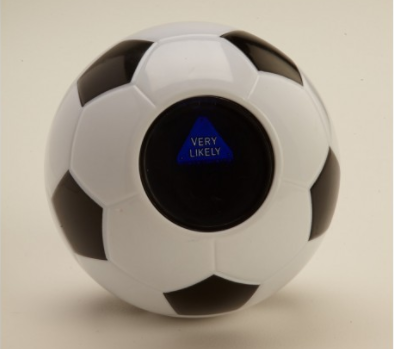
Today is the filing deadline for candidates for president of the US Soccer Federation. Between now and the election in February there will be lots of hot-taking, statement parsing, and political predicting. Soccer fans like to express opinions. A lot of soccer fans are also politics fans (or at least followers) and like to express opinions about politics as well. For many of us the urge to express opinions about the politics of soccer politics can be too great to resist.
As such, a few reminders about soccer politics and political predictions are in order.
First and most importantly, the election is about who gets to vote in the election and how much those votes count. In his interview with Sam Borden at ESPN in which he announced he was not running for re-election, US Soccer president Sunil Gulati said: “…the general perception in the soccer community versus the people who vote in elections may be different right now.” By the “soccer community” he means people like you and me. By “people who vote in elections” he means the members of the Federation who get to vote, and how much those votes count — most doing hot-taking, parsing, and predicting aren’t those people (at least I’m not).
Who does vote? An excellent question to which Anthony DiCicco has the best answer. In reviewing the rules about who gets to vote note that not all votes count the same — the winner needs 50%+1 of how the votes count, which may or may not be 50%+1 of the votes cast or of the opinion of soccer fans broadly.
I have compared the election for president of US Soccer to the way the Democratic National Committee selects the presidential nominee. I was wrong; it is more like what would happen if the DNC and the electoral college had a secret love child.
Second, political professionals are terrible predictors of politics. In a 2005 book called Expert Political Judgement, University of Pennsylvania professor Phil Tetlock reported on 20 years of data measuring expert political predictions. One reviewer noted that the results of one of Tetlock’s tests found that “Human beings who spend their lives studying the state of the world…are poorer forecasters than dart-throwing monkeys.” I would extend this caution to those who predict soccer politics as well.
They (we) tend to be bad at predicting things like elections for a few reasons:
We’re overconfident. We tend to think that because we’ve been doing something for a while, and because we follow a topic closely, we are pretty sure what’s going to happen next. That’s a pretty poor assumption. If someone is certain they know who will win the Federation presidential election, odds are better than even they are wrong.
We’re dogmatic and don’t update our predictions based on new information. The most successful predictors update their forecasts as they learn new, relevant, information. The world changes and those changes sometimes matter. That said, we tend to get distracted by the irrelevant details and miss the important big stuff — to steal the title of a book that goes to great lengths to make this point, we aren’t very good at telling the signal from the noise.
We mistakenly assume that since we came to a given conclusion, others must come to that conclusion as well. This is called the false consensus effect. Just because you and everyone you know thinks a given candidate is the obvious choice for president of US Soccer doesn’t meant that anyone whose vote counts agrees with you. Similarly we tend to look for and agree with information with which we agree — this is the confirmation bias (and its cousin motivated reasoning). As a species we’re fond of saying “I knew it all along.”
On the upside, the more you know about politics the worse you are at political predictions. The fact that I’m often wrong only proves how clever I am. Or something like that.
With all that, let the predicting, parsing, and hot-taking proceed!
